Filter by
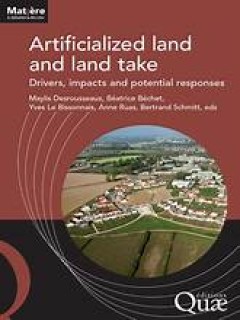
Artificialized land and land take
Considered as one of the main factors in erosion of the biodiversity, land take describes the global reduction in the proportion of land allocated to farming and forestry or to natural spaces. This work identifies the decisive economic and social factors in land take and its impact on the environment and agriculture. It suggests levers of action likely to limit its development and its negative …
- Edition
- -
- ISBN/ISSN
- -
- Collation
- -
- Series Title
- -
- Call Number
- -

Biodiversity-Health-Sustainability Nexus in Socio-Ecological Production Lands…
This is an open access book. It is a compilation of case studies that provide useful knowledge and lessons that derive from on-the-ground activities and contribute to policy recommendations, focusing on the interlinkages between biodiversity and multiple dimensions of health (e.g., physical, mental, and spiritual) in managing socio-ecological production landscapes and seascapes (SEPLS). This bo…
- Edition
- -
- ISBN/ISSN
- 9789811698934
- Collation
- 286
- Series Title
- Satoyama Initiative Thematic Review
- Call Number
- -

Biodiversity, Distribution and Conservation of Plants and Fungi : Effects of …
This Special Issue brings together some interconnected topics related to fungi and plants such as biodiversity, taxonomy, conservation, molecular phylogeny, ecology, and plant–fungal interactions. Additionally, some applied aspects are covered, such as phytoremediation, the improvement of spinach growth by biochar and arbuscular mycorrhizal fungi, bio-friendly solutions for waste reduction, t…
- Edition
- -
- ISBN/ISSN
- 9783036544069, 9783036544052
- Collation
- 240
- Series Title
- -
- Call Number
- -

Biodiversity of the Gulf of Guinea Oceanic Islands : Science and Conservation
This open access book presents a comprehensive synthesis of the biodiversity of the oceanic islands of the Gulf of Guinea, a biodiversity hotspot off the west coast of Central Africa. Written by experts, the book compiles data from a plethora of sources – archives, museums, bibliography, official reports and previously unpublished data – to provide readers with the most updated information …
- Edition
- 1
- ISBN/ISSN
- 978-3-031-06153-0
- Collation
- 694
- Series Title
- -
- Call Number
- XXV, 694

Biodiversity of sensory systems in aquatic vertebrates
This eBook is a collection of articles from a Frontiers Research Topic. Frontiers Research Topics are very popular trademarks of the Frontiers Journals Series: they are collections of at least ten articles, all centered on a particular subject. With their unique mix of varied contributions from Original Research to Review Articles, Frontiers Research Topics unify the most influential researcher…
- Edition
- -
- ISBN/ISSN
- 9782889639601
- Collation
- 144
- Series Title
- -
- Call Number
- -
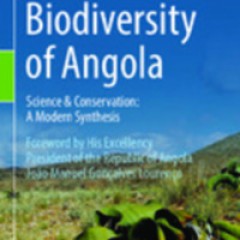
Biodiversity of Angola : Science & Conservation : A Modern Synthesis
This open access multi-authored book presents a 'state of the science' synthesis of knowledge on the biodiversity of Angola, based on sources in peer-reviewed journals, in books and where appropriate, unpublished official reports. The book identifies Angola as one of the most biologically diverse countries in Africa, but notes that its fauna, flora, habitats and the processes that drive the dyn…
- Edition
- -
- ISBN/ISSN
- 978-3-030-03083-4
- Collation
- 549
- Series Title
- -
- Call Number
- -
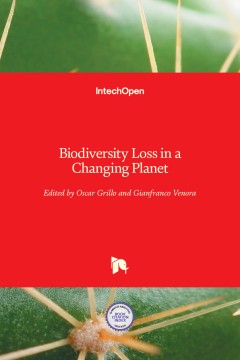
Biodiversity Loss in a Changing Planet
Every ecosystem is a complex organization of carefully mixed life forms; a dynamic and particularly sensible system. Consequently, their progressive decline may accelerate climate change and vice versa, influencing flora and fauna composition and distribution, resulting in the loss of biodiversity. Climate changes effects are the principal topics of this volume. Written by internationally renow…
- Edition
- -
- ISBN/ISSN
- 9789533077079, 9789535144014
- Collation
- 330
- Series Title
- -
- Call Number
- -

Biodiversity in Locally Managed Lands
This volume assembles papers that provide empirical evidence for the success or otherwise of landscape and community or local government managed initiatives to conserve biodiversity. The papers report successful biodiversity conservation projects that have operated at those scales as well as documenting cases where these approaches were attempted but were less successful. The papers identify th…
- Edition
- -
- ISBN/ISSN
- 9783038424550, 9783038424543
- Collation
- VIII, 158
- Series Title
- -
- Call Number
- -
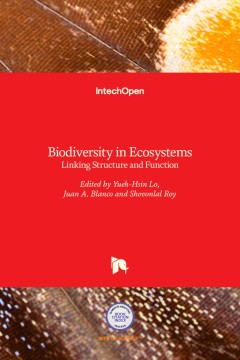
Biodiversity in Ecosystems : Linking Structure and Function
The term biodiversity has become a mainstream concept that can be found in any newspaper at any given time. Concerns on biodiversity protection are usually linked to species protection and extinction risks for iconic species, such as whales, pandas and so on. However, conserving biodiversity has much deeper implications than preserving a few (although important) species. Biodiversity in ecosyst…
- Edition
- -
- ISBN/ISSN
- 9789535120285, 9789535142263
- Collation
- 642
- Series Title
- -
- Call Number
- -
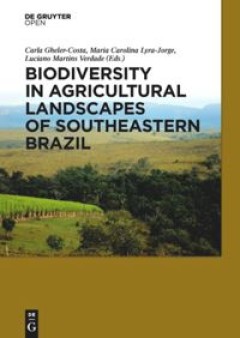
Biodiversity in Agricultural Landscapes of Southeastern Brazil
The state of São Paulo, Brazil, is one of the most densely populated and developed areas in South America. Such development is evident both in terms of industrialization and urbanization, as well as in agriculture, which is heavily based on sugar cane, Eucalyptus plantations and livestock. This intense land use has resulted in great alteration of the original land cover and fragmentation of na…
- Edition
- -
- ISBN/ISSN
- 9783110480979, 9783110480849
- Collation
- 366
- Series Title
- -
- Call Number
- -
 Computer Science, Information & General Works
Computer Science, Information & General Works  Philosophy & Psychology
Philosophy & Psychology  Religion
Religion  Social Sciences
Social Sciences  Language
Language  Pure Science
Pure Science  Applied Sciences
Applied Sciences  Art & Recreation
Art & Recreation  Literature
Literature  History & Geography
History & Geography